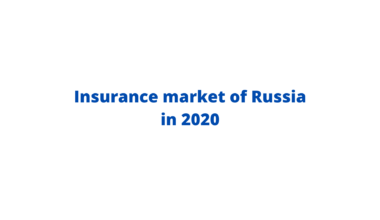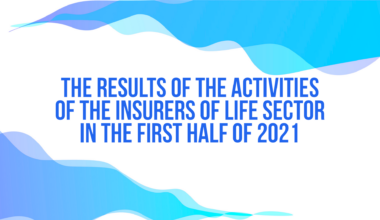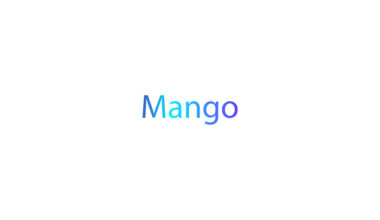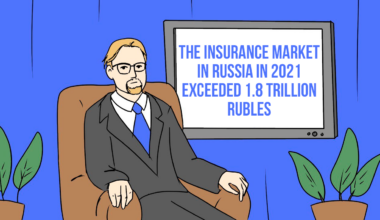Do you remember how it all began? Telemedicine yesterday, today, tomorrow
As we previously promised our readers in a review on this topic Telemedicine in Russia: service and insurance, we have prepared an interview with an expert who was one of the originators of the telemedicine direction in Russia.
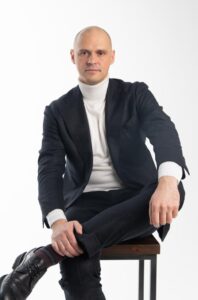
Denis Yudchitz – CEO of Mobile Medical Technologies LLC, co-founder and head of the Pediatrician 24/7 and Online Doctor projects, graduated from the State University of New York (SUNY) with a degree in Biotechnology and Finance-Pharmacology. He completed his MBA at the Moscow School of Management SKOLKOVO.
Let us start our conversation…
– Denis, good afternoon. We are glad to welcome you to our interview. Everyone is interested in history: when did it all start in Russia?
– The first video consultations in the Russian Federation were held in 1995 in the city of St. Petersburg. But the very first steps date back 70 years when the transfer of ECGs over a distance to special consulting centers were carried out.
A new round of telemedicine development took place in the late 1990s – early 2000s when the spread of the Internet in Russia brought the exchange of information to a different level.
On January 1, 2018, the Federal Law entered into force. According to this law, the concept of ‘telemedicine’ was officially introduced into Russian legislation.
However, in the form in which telemedicine is now, our company was one of the first to implement this in 2013.
“The first video consultations in the Russian Federation took place in 1995 in the city of St. Petersburg. But the very first steps date back to 70 years, when the transmission of ECGs at a distance to special consultation centers was mainly carried out.”
– Why did you choose this direction for the development of your business?
– It all started back in 2013, in Skolkovo, where I met my future business partner. Soon a child was born in his family, and, like all parents, he and his wife had a lot of worries related to taking care of the baby. Often help was needed at night, and there was no way to get an answer there and then. This is what our starting point became. We got to know the doctor, shared the idea and our observations with him and it was decided to use IT and medical practice to resolve the issues of young parents. In addition, by 2014, the Pediatrician 24/7 service was implemented.
The pediatrics service worked 24/7. The user opened the site, clicked a button and a doctor contacted them within 3 minutes and answered all their questions. The doctor could relieve anxiety, decipher the analyses, and answer any of questions parents have.
My story began with the corporate sector, where I was engaged in vaccine research, then I worked in the healthcare system and after graduating from Skolkovo and meeting my future business partner, I did not want to return to the corporate sector, since it was 2014 and the height of the crisis. So I decided to move on.
– Can you list the main stages of your business development?
– In 2013, the idea of creating a telemedicine service appeared.
By 2014, the MVP “Pediatrician 24/7” has been created already.
In 2015, we created the first insurance product together with VTB Insurance.
– Excuse me for interrupting you, but the insurance product Telemedicine with VTB-Insurance was the first experience on the market, or has someone already dealt with this, exactly as a monoproduct?
– Our experience of launching the insurance product Telemedicine was the first on the market. We can say that it all started with this.
In 2016, we realized that we needed to expand the capabilities of the service, so we created the Online Doctor service, which covered issues related not only to children, but was also available for adults.
In 2017, we have already seen an active growth in the line of insurance products.
In 2018, we made the first integration with laboratories.
In addition, in 2019 we created our first telemedicine complex.
Year 2020 was difficult, but interesting for us. We began to develop the b2c sales direction, connected the opportunity to receive face-to-face appointments with the help of our service, launched the “Care Department”, which includes a medical assistant who can help solve various types of issues even before consulting a doctor, and implemented our telemedicine complexes on Chukotka.
– Yes, indeed, it was a long way. How does telemedicine work now?
– On July 29, 2017, Federal Law No. 242 was adopted. This law regulates the implementation of IT rules in the healthcare system.
On January 09, 2018, the Ministry of Healthcare Regulatory Market signed the rules and regulations of telemedicine.
For citizens, this is a relatively new way of receiving medical care. Nevertheless, more and more people are showing interest in it. As a result, new digital services are appearing on the market, and insurers are increasingly including the ability to receive remote consultations – via chat or video calls – in their products as additional options.
– What is the capacity of the telemedicine market in your opinion?
– In 2019, the market volume was 1.5 billion rubles (based on the information of VEB Ventures).
They also predict that by 2025 the volume may reach 96 billion rubles.
Estimated, probably it is.
– How many telemedicine products are sold through partners, insurance companies and agents?
-Approximate breakdown of sales:
– 60% – Insurance companies,
– 25% – Partners and Banks,
– 15% – Direct sales.
Our main sales channel is partners and insurance, as we work on the B2B2C model
Our main sales channel is partners and insurance, as we work on the B2B2C model
In addition, this year, we began to develop actively the B2C sales channel, that is, our client can buy the product directly on the website.
– Which, in your opinion, is better, telemedicine as insurance or as a service?
– Firstly, if you provide good service, you cannot always sell it well and scale it. Therefore, if an insurance company acts as an agent that sells a product well, then you can follow this model in the case where you do not have a direct relationship with the client. This usually applies to offline sales, because the insurance company acts as an icebreaker here.
Moreover, in working with the corporate sector, more and more insurance companies are stepping on the toes of companies that have direct interaction with the client, for example, Sber Health.
In terms of taxation, there is a moment that without an insurance license you do not receive benefits and the amount of insurance has to be deducted from the profit. From the point of view of taxation, insurance companies are preferred. Even if you have, for example, a medical institution and you can connect employees to its use, or your employees can be referred to this medical institution under an insurance policy, then as a rule it is more profitable to do this through an insurance policy because the tax rate is lower and you buy an insurance product, and not a direct medical one.
– What are the main products on the telemedicine market (insurance and services)?
– Our main product is, of course, telemedicine consultations and we are building a full-fledged ecosystem of health around them that can resolve almost any issues.
We are integrated with several networks of laboratories, more than 2000 departments across Russia. For insurance partners we sell consulting packages that include a list of analyses. It is always different; it can be like tests for a nutritional product or, for example, an analysis for coronavirus infection.
For referrals for diagnostics we are now forming a detailed list of clinics throughout Russia so that, if necessary, users can be referred to face-to-face appointments or diagnostics.
Now we are also actively developing the direction of psychology for both B2C and B2B sectors.
* There are no basic products for foreigners, but for specific requests, we can provide a list with English-speaking doctors.
We offer our solutions:
– For the banks and insurance companies on the B2B2C model,
– Corporate B2B sales (corporate psychologist, insurance program, as an alternative to VHI),
– Direct sales to B2C users,
– Cloud solutions for clinics,
– Telemedicine complexes
– What is the average price for a product on the market?
– The price of a product varies greatly depending on its content.
If we talk about a one-time consultation with a therapist on duty, the price on average varies from 500 to 1 000 rubles.
This is influenced by many factors:
– Where the consultation is held – on a specialized platform or skype, zoom, etc.,
– The qualifications and experience of the doctors,
– If the platform is where many clinics are collected or a clinic platform with its own doctors.
– What are the distinguishing features of your project from others?
– The main competitiveness is the quality of service provided.
Satisfaction with our service is 98%. If the doctor gets a score below 4 after the consultation, the quality control department is alerted and reviews the consultation. Before being admitted to the service, each doctor undergoes two interviews and training before starting a consultation. The average length of service of doctors at our service is 17 years.
– What, in your opinion, hinders the further development of telemedicine in Russia?
– These are primarily legal restrictions:
- Medical workers cannot diagnose and prescribe treatment when providing remote medical advice without a face-to-face appointment, but can only give recommendations,
- Correction of previously prescribed treatment during a medical consultation with the use of telemedicine technologies is possible only by the attending physician when he establishes a diagnosis and prescribes treatment at an in-person appointment,
- Telemedicine use is possible only if the doctor is on the premises of the clinic,
- In addition, there is no way to create electronic sick leave certificates and write electronic prescriptions.
– Are there special products and research methods in telemedicine?
– Users of telemedicine in Russia are offered an additional function – this is the second opinion of foreign doctors. The cost of such a consultation is more expensive than usual, but not more expensive than the entire trip. It is very important to understand the purpose of such a consultation. Usually, they are carried out in a format when all the studies have already been collected; there is a primary diagnosis, and so on.
We have such a service; we sell it as part of insurance products. This product was developed in cooperation with the Israeli Hadassah Hospital. Obtaining a second opinion goes through a classic online consultation window.
– How do you see the development of telemedicine abroad?
– Telemedicine has achieved the greatest development today in Europe and the United States. Both legislative and economic aspects of this service developed there. One of the main reasons for the development of telemedicine in Europe and the USA is the economic aspects.
In the United States and in European countries, medical care is quite expensive, and telemedicine has developed largely because it is more profitable for people to receive consultations and write prescriptions using remote assistance and remote consultations with a doctor. It is cheaper both for the patient and for the insurance companies in general, which usually cover these costs. Here, telemedicine products are usually already integrated and incorporated into insurance products.
– What, in your experience, are the most popular areas in telemedicine?
– The first is remote consultations, the second – health monitoring.
Moreover, a large number of devices, solutions, devices, services, cloud services have appeared recently, which provide monitoring capabilities and convenient services through which we can connect and communicate with a doctor to monitor our health. Accordingly, health monitoring is something that will develop and gain momentum.
– How will the telemedicine market develop in Russia in the next 2-3 years?
– For a huge country with hard-to-reach medical care in different regions, limiting the number of narrow telemedicine specialists is an important and necessary health tool.
Telemedicine can significantly reduce the number of face-to-face consultations and increase the level of control over chronic diseases, which face-to-face appointments cannot fully do. Thanks to remote monitoring devices, regular monitoring of vital blood parameters, and the ability to receive data in real time by medical personnel, an increase in compliance is expected, and a quick response to acute situations is expected.
– What does it take to make a leap in this direction?
– Firstly, these are legislative measures. Remove restrictions on the location of a doctor so that he can consult not only from the clinic.
Secondly, to develop the direction of prescription drugs prescription.
In addition, thirdly, correction of a diagnosis. I think it is worth defining a list of primary diagnoses that could be done remotely.
Well, and another important point in the CHI system is electronic hospital and electronic prescriptions.
– In your opinion, will young specialists give preference to telemedicine rather than classic work with patients in clinics?
– I think that the question here is not preference, but a tool like filling out an electronic medical card.
The digital medical ecosystem is like a pen or stethoscope. Monitoring, telemedicine, e-prescriptions and sick leave are all in the digital health ecosystem. Not only to give preferences, but without them there is no way to do anything. The same as writing with a pen or a nib and ink. You can write with a nib it will be expensive, slow and aesthetically beautiful, but this is the approach of Alexander Dumas and if you use a pen, then you switch to a new toolkit.
– What new methods will be available in telemedicine in the near future?
– Dynamic monitoring is included in the tariffication of compulsory medical insurance and, in principle, in the market it shows Tyto Care and a number of devices that work only with telemedicine service.
The second is electronic sick leave and prescriptions.
In addition, drug delivery. It is very important that the delivery of medicines is not just to the pharmacy, but by analogy with food there is Dark Kitchen, Uber X, Janedks, Kitchen in the area, which will take medicines from the restaurant home.
I also believe in diagnostic tests at home, as COVID-19 diagnostics at home are popular now, but there are also more complex tests. A large line of various tests and check- ups that can be ordered at home and used to determine what is happening and how.
– Are blockchain and inshurtech interesting for a telemedicine project?
– I don’t know about successful applications with monetization on blockchain. Not really my topic, so I won’t presume to comment.
And insurtech is, in fact, what we do. We are a service provider and we are an underwriter. Insurers who act as agents replacing companies that work with the consumer.
For example, Alibaba itself can make insurance products for people who are a small business and send food and goods through by AliExpress, Alibaba may act here as a conditional ‘insurance company’.
As well, Yandex can do insurance and underwriting for passengers and taxi drivers, since they have a direct relationship with the client and they have all the tools to make the right insurance.
This is how we work, as we work with the client and in the insurance model we do the financial underwriting on ourselves. Therefore, the insurance company acts as an agent and makes sense only if it effectively sells solutions. If it is not a good agent, then other services will take their places.
And at the end of our interview, on behalf of our information and analytical resource – thoughtful insurance, we would like to thank our guest and wish the successful completion of the company in 2020, and to us – our clients – understandable, accessible, high level of service, at the same time, inexpensive products!
You can read the article on telemedicine insurance in the Telemedicine 2020: an overview of insurance for 10 insurance companies.
Stay tuned and stay updated!
© Correspondent L.S.
Calmins.com ©

